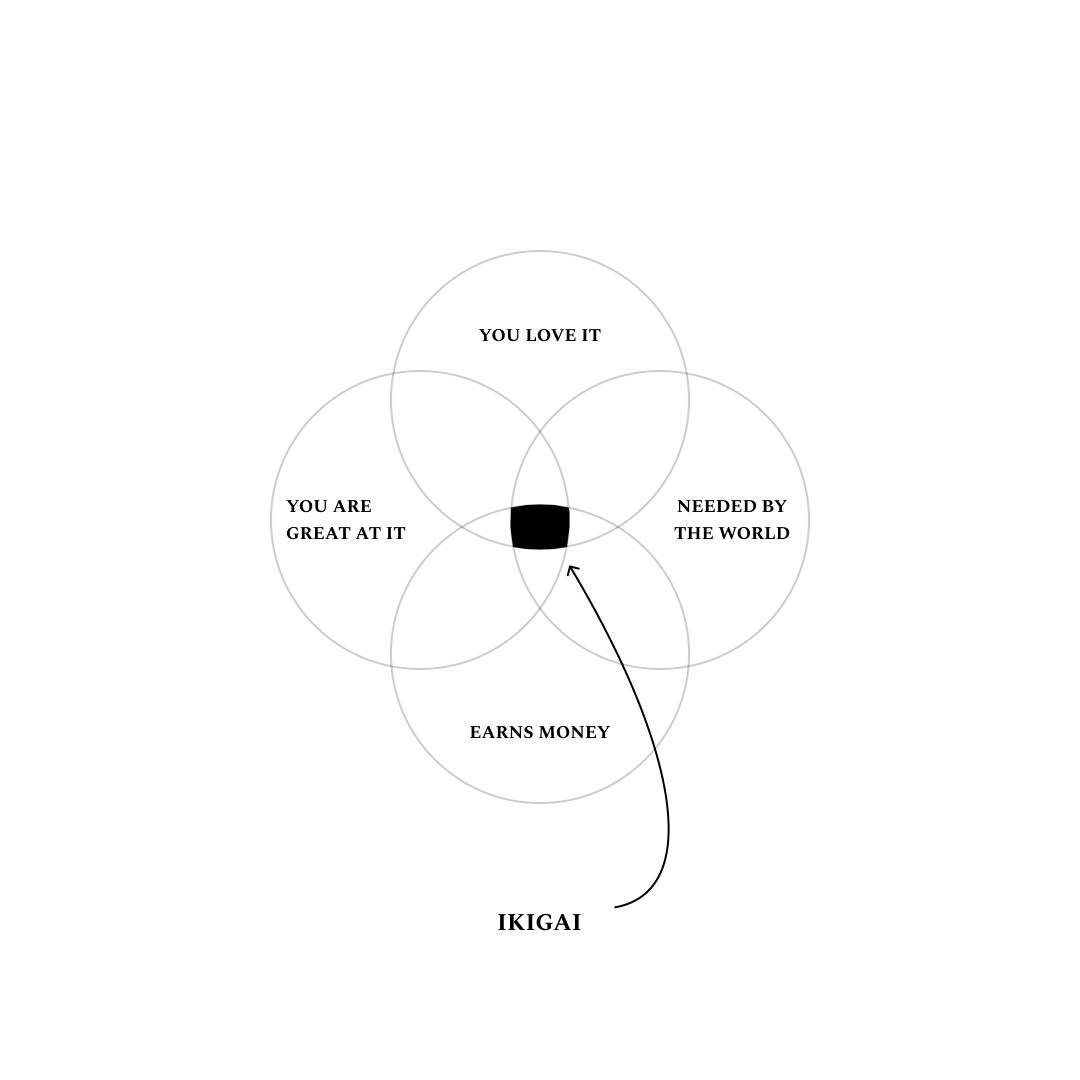Badass Maximization
My bastardized version of Ikigai
Howdy friends! I hope you’ve had a beautiful week!
Welcome back to the Infinite Playground. Three times in one week! How damn!
This is my last post from my backlog.
This time: A quick idea I’ve had a lot of fun with. A good get-to-know you question when chatting with interesting people.
The Japanese have the concept of Ikigai, a path that gives a person a sense of purpose and a reason for living. It’s a motivating force.
Ikigai is often shown as a Venn diagram with four circles.
What do you love to do?
What are you great at?
What does the world need?
What will the world pay you for?
You’ll find Ikigai at the center of all four circles.
I’ve started kicking around my own version of this framework.
I find the traditional representation of Ikigai a little reductive. It reeks of a concept that got pulled over from Japan in the 80s. I find new things I love all the time, so do many inspiring friends and those I aspire to be like. Greatness of skill can be predisposed, but you can develop it over time. You may not be great at something right now that is worth pursuing. Lastly, there is no magnitude of “needed by the world” or “earns money”. The diagram almost needs a third dimension.
I’ll work through the version I’ve come to as I’ve worked through several business ideas over the past two months.
Regret Minimization
Jeff Bezos has popularized the “Regret Minimization Framework”.
The framework’s idea is simple: Project yourself forward into the future. Look back on a decision. Ask "Will I regret not doing this?" Act accordingly.
Bezos used this idea to push him to leave his cushy hedge fund job and found Amazon. The power of the framework is clear. Getting yourself out of your own head and the confines of your current situation helps you put things in perspective.
The idea correlates a lot with Ikigai’s “do what you love and what you’re great at”. But I think it hits the nail on the head more squarely. I may love playing drums, but even if I had the capacity to be great, I won’t regret not dedicating my life to starting a punk band. It clarifies hobbies you love from pursuits that you love which you can dedicate a life to doing.
The framework is good for decision making, but not good for generating a path forward. So how do I find what is worth dedicating a life to?
It probably has a quality that you deeply resonate with. It brings out a response of awe or excitement through its existence. Put plainly: It’s probably badass.
Badass Maximization
Let me introduce my own addition to the Regret Minimization Framework - the O’Briant Corollary - the Badass Maximization Framework.
My extension is equally simple. It asks “What was badass to you at 5 years old? What is badass to you today? What will be badass to you on your deathbed?”
If there is a through-line, dig in. For me, the answers are pretty clear.
Space is badass. Robots are badass. AI is badass.
If I could spend a life building things I felt are badass, then I have a high likelihood of thinking I lived a good life with a good career.
Bringing It Together
Let’s bring the two frameworks together. Once they’re united, everything falls into place.
What pursuit is so badass that you would regret not doing it while you rest on your deathbed? What opportunities push that badass field forward at the frontiers? Which of those frontiers have the most latent value that is waiting to be unlocked?
Head to that frontier. Fight like hell. Maximize badassery. Minimize regrets.



